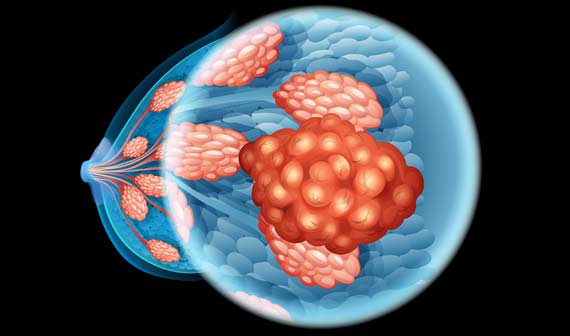
According to the National Cancer Institute, nearly 2 million new cases of cancer are diagnosed each year in the United States.
While cancer can produce many different symptoms, it’s not a disease that always results in pain–but it sometimes does. Cancer pain is more likely to be experienced if it has spread beyond the point of origin, or if it’s a type of cancer that has returned after a period of remission.
Forms of Cancer Pain
From dull aches to sharp pain or burning sensations, cancer-related pain can be experienced in many different ways. Some cancer patients report mild and intermittent pain, while others have chronic or more severe discomfort. The way cancer pain is experienced will depend on several factors, including:
- The type of cancer
- How advanced the cancer is
- Personal tolerance for pain


Causes of Pain Related to Cancer
Some pain comes from the cancer itself as it spreads and damages tissue. This type of cancer pain is more likely to be experienced with more aggressive forms of cancer such as breast, bowel, prostate, or lung cancer. A growing tumor may also irritate nerves or placed added pressure on bones. Some cancer patients have discomfort from what’s termed peripheral neuropathy, referring to damage to nerves located outside of the spinal cord and brain. Pain may also result from chemicals released by tumors or reactions to various cancer treatments.
Treating and Managing Cancer Pain
The most common way to treat cancer pain is to remove the source of pain by treating the tumor itself. This is often done with surgery or a combination of chemotherapy and radiation therapy. If these treatments aren’t effective or aren’t an option, cancer pain may be manageable with over-the-counter or prescription medications. Some patients benefit from the use of weaker opioid drugs. With some types of cancer, stronger opioids may be prescribed, although patients are often advised to take more potent pain medications with caution because of the risk of addiction. Additional pain management options for cancer patients include:
- Nerve blocks
- Physical therapy
- Massage or relaxation therapy
- Acupressure
- Meditation or hypnosis
Discussing Cancer Pain
Some cancer patients are reluctant to discuss cancer pain because of concerns about opioid use and abuse or side effects associated with some pain management medications. However, making an effort to discuss pain can often help patients enjoy an improved quality of life. Having a discussion about pain should involve voicing honest concerns about side effects and other issues. In many instances, doctors or pain management specialists are able to recommend treatments for cancer pain that minimize patient risks. A productive discussion of cancer-related pain typically involves:
- Talking about experiences with previous attempts at pain management (e.g., home remedies or OTC medicines)
- Discussing what makes pain feel better and what makes it worse
- Going over what can be done if any side effects are experienced with certain pain medications
Because cancer pain is subjective, it can also help to describe it on a 0-10 pain scale, with 0 referring to minimal discomfort and 10 being reserved for extreme pain. Another option is to keep a journal that describes your experiences with cancer-related pain to identify any unique patterns that may help with pain management recommendations.
